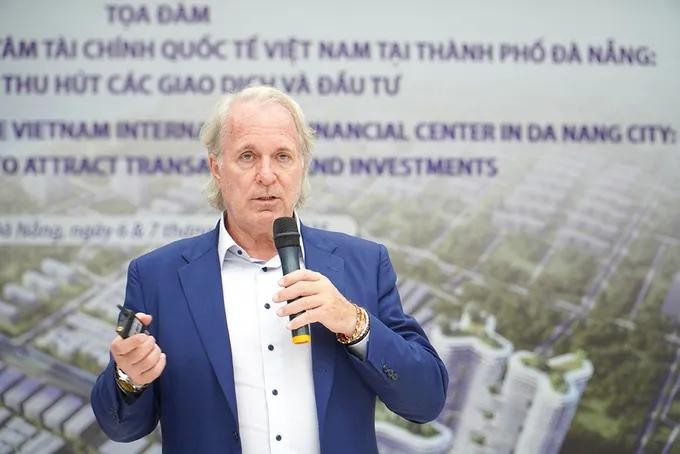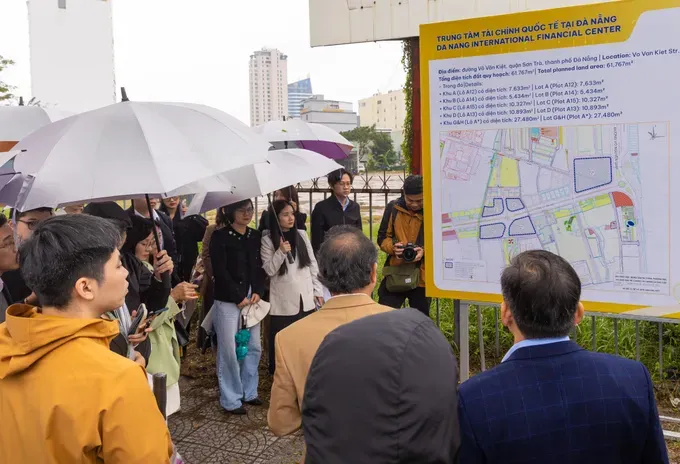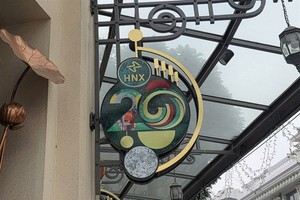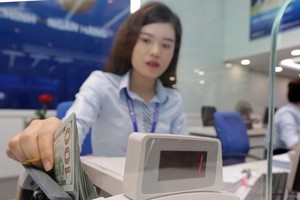The establishment of Da Nang International Financial Center (DIFC) is poised not only to diversify Vietnam’s capital markets but also to position the city as a rising destination for global technology-driven capital flows.
)
Experience from leading financial centers such as Hong Kong and Singapore shows that success depends not merely on attracting capital, but on maintaining a transparent and consistent legal framework for digital asset operations.
According to Ben El-Baz, Global Head of Expansion at HashKey Group, Vietnam is moving in the right direction with Resolution 05 and the development of a legal framework for virtual assets. Licensed domestic exchanges, he said, will help protect investors, attract investment inflows, and drive Web3 innovation in Vietnam. To succeed, these exchanges must uphold global standards of transparency, data security, and oversight comparable to those in major financial hubs.
El-Baz also emphasized that Da Nang has the potential to become a regional hub for digital asset innovation, provided that Vietnam finalizes its legal and regulatory sandbox frameworks soon. Clear regulations, he added, not only protect users but also serve as the key to unlocking international investment.
From a market development perspective, Lamon Rutten, an expert with the International Finance Corporation (IFC), believes that Da Nang and Ho Chi Minh City could evolve into trillion-dollar digital asset trading centers—if appropriate policies are in place. Tokenizing real-world assets such as real estate, enterprises, seaports, and yachts could mobilize vast capital, particularly for private and infrastructure projects. “If the Vietnamese government allows asset tokenization pilots within the international financial center framework, it could trigger a major leap in financial innovation,” he noted.
Rutten also highlighted that tokenizing infrastructure projects could empower community participation, enabling citizens to invest and benefit directly from local development while fostering economic sustainability. With its moderate scale and coastal advantages, Da Nang is well-suited for such controlled pilot programs. Success there could pave the way for replication nationwide.

Founder and Managing Partner of Martin Davis PLLC (USA) David Otto stressed that the success of an international financial center hinges on developing a globally compatible regulatory framework—one that ensures compliance while encouraging innovation. He recommended that Da Nang’s center adopt a regulated sandbox model, allowing businesses to issue, trade, and manage digital assets safely. “The regulatory structure must both protect investors and foster innovation,” Otto said, citing the positive outcomes of sandbox trials in several countries.

Similarly, Joeh Shen, Partner at Withers Khattar Wong LLP, observed that Da Nang’s financial center should not be limited to finance and banking. It should aim to become a broader innovation hub, with digital assets and cryptocurrencies as key pillars. “If Vietnam adopts an open and flexible management model, Da Nang could become a global testbed for emerging fintech technologies,” Shen remarked.
Drawing on China’s experience, President Shan Fu of the Hainan Institute for Digital Technology and Consulting advised that Da Nang’s financial center must remain open to international financial institutions while providing regulatory flexibility and investment incentives. He cited Hainan’s Free Trade Zone as a successful example having attracted hundreds of fintech firms through expedited licensing, tax breaks, and temporary trial regulations. “The essential factor,” he said, “is having the courage to experiment while maintaining effective risk control.”
Experts agree that these combined factors will determine whether the Da Nang International Financial Center can rise as the “new star” on Asia’s financial map.
























